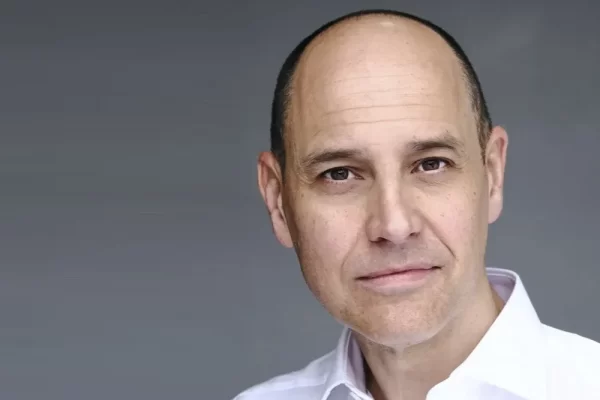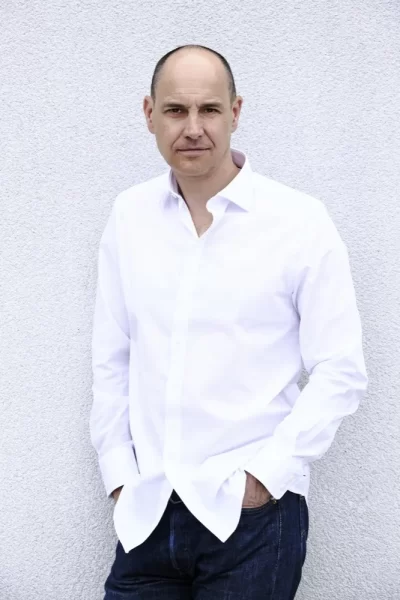interview by Fatiha Idrissi
- How do you define physical beauty and what is your philosophy of patient care?
What one considers beautiful is a highly personal matter, and for that reason, the basis of any aesthetic consultation is an honest conversation between doctor and patient. My role is not to impose my view of beauty on a patient, but to listen to my patient’s concerns and advise them on what can be achieved by surgery, and sometimes, what cannot! For me, the most important thing for beauty is that it must look natural. My philosophy of care is that cosmetic surgery is no different to any other kind of surgery, it’s a serious undertaking. I like my patients to leave my office feeling that I have understood their concerns and they have been given all the information they need and had opportunity to ask any questions they may have. If fact, I love it when patients ask questions, it reassures me they are actively thinking about what we are discussing.
- Please describe the type of surgical procedures you perform in your practice at Dubai King’s College Hospital London.
I perform all types of cosmetic surgery. I have a special interest in lipoabdominoplasty which I acquired during my Fellowship in South America eight years ago. I also balance my time in cosmetic surgery with my interest in specialist reconstruction. I have a background in complex reconstruction, including breast reconstruction, but also more recently facial and major post-cancer reconstruction around the whole body. 
- What should a consultation patient expect when coming to your office for the first time?
My patients’ reviews often comment on my approachable consultation manner, but perhaps the review I am most pleased with was “Mr E tells you what you need to hear, not what you want to hear”. I take pride in being approachable, a good listener but also giving honest and frank advice to my patients.“
- Dr Demetrius, you are a highly regarded plastic and reconstructive surgeon (you saved many lives like activist Malala and war victims…) how did you choose the specialized areas of medicine you have been practicing for over 20 years?
I had originally intended to be a vascular surgeon, however, that changed when I worked in Plastic Surgery asa junior doctor for the first time. I was attracted by the breadth of the field and the technical challenges. I am also attracted by the fact that in Plastic Surgery, your results are on display for all to see – everyone can see how good a plastic surgeon you are – that makes it very challenging. My interest in facial palsy was developed when I was working for Drs Manktelow and Neligan in Toronto. I love being able to quite literally restore a smile to someone’s face. I still enjoy the breadth of plastic surgery, it is constantly challenging, as no two cases are alike.
- What would you say to anyone contemplating cosmetic or reconstructive surgery (like amputees or disabled patients)?
My advice would be to take your time and choose a surgeon that you can connect with and who you feel understands your concerns fully. Plastic surgery is a journey and you want to feel that your Surgeon genuinely cares for your wellbeing as a person. If they do, then they will be able to give the best advice. 
- What are the most common surgeries that you perform?
I have a reputation for Brazilian lipoabdominoplasty and cosmetic breast surgery – so I do a lot of these procedures. As a trained occuloplastic surgeon I also perform a lot of eyelid surgery such as blepharoplasty often in combination with facelifting.
- You are one of the well-known Doctors in the UK and now in UAE who have performed a significant amount of facial paralysis procedures with good outcomes, can you describe more about this procedure?
It very much depends on the individual patient and the reason for the paralysis, sometimes we can simply borrow another nerve in the face to transfer to the facial muscles to get them moving, but if the paralysis has been present for a long time, we may need to also borrow a piece of muscle from the thigh and then transplant it into the patients cheek, attaching it to the lips and then we use a microscope and sutures finer than a human hair to repair the blood vessels and nerves to get the muscle working again. This is known as a “smile transplant”. To restore someone’s ability to smile and make them look normal again is hugely rewarding.
- What is coming up on the horizon in the field of cosmetic and plastic surgery? Are there any new procedures or products to watch out for?
I think the lipoabdominoplasty (Brazilian Tummy tuck) will replace traditional abdominoplasty surgery. It allows the surgeon to combine all the advantages of full liposuction to the whole abdomen which removes fat and sculpts the whole tummy, whilst removing all excess skin and tightening the tummy muscles also. Not only that but it is safer and the recovery even quicker! Since I learned how to do it 8 years ago – it has completely replaced the traditional operation in my practice.
There is an increasing trend in combining different modalities to achieve synergy of effect – maximising improvement whilst minimising complications and risks. That’s why I also recommend that anyone considering aesthetic treatments seek advice from someone who can offer all modalities – both surgical and nonsurgical – in order to get the very best advice.
In the UK we have been developing new techniques to help amputees such as targeted muscle reanimation for neuroma pain and osseointegrated walking implants, in which the prosthetic leg is fixed directly to the bone allowing effectively normal walking – this is very exciting, and I am hoping to introduce this to the UAE very soon
- Any final comments?
I am delighted to be in the UAE and here in Dubai. Since I arrived a few weeks ago everybody has been so very welcoming. I really feel at home. Thank you for having me!



















